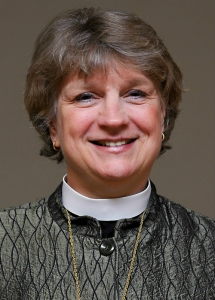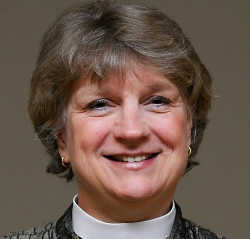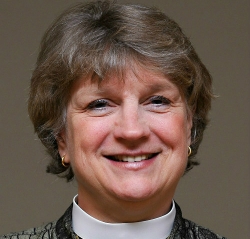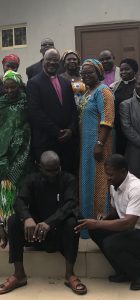Where do we find ourselves?
October 9th, 2018 By Bishop Ann Svennungsen
By Bishop Ann Svennungsen
What does one say after the events of the past 10 days? What does one write when events have affected you more deeply than you could have imagined?
To watch the testimony of Dr. Christine Blasey Ford and Judge Brett Kavanaugh was heart wrenching for me. Though I have not been a victim of sexual assault, I have experienced sexual harassment. And I’ve spent hours with victims of both, as a pastor and bishop. Perhaps, the countless hours a bishop puts into protecting the church from sex abusers and working for restoration after a congregation suffers the agonizing effects of sexual misconduct have made the past 10 days especially heartbreaking.
Oh, I admit that any event can be used for partisan ends. And, I admit that I wasn’t following closely the hearings early on; I did not experience great passion over whether Kavanaugh was confirmed as a Supreme Court justice or not. But, I was pained by the way we handled allegations of sexual assault.
Though columnist David Brooks is often my “go-to” guy on issues of character, I struggled with his October 4 column. He writes: “[R]eactions to the narratives have been determined almost entirely by partisan affiliation. Among the commentators I’ve seen and read, those who support Democrats embrace Blasey’s narrative and dismissed Kavanaugh’s. Those who support Republicans side with Kavanaugh’s narrative and see holes in Ford’s.”
“The countless hours a bishop puts into protecting the church from sex abusers and working for restoration after a congregation suffers the agonizing effects of sexual misconduct have made the past 10 days especially heartbreaking.”
Brooks goes on to describe an epidemic of bigotry: “It was bigotry against Jews that got Alfred Dreyfus convicted in 1894. It was bigotry against young black males that got the Central Park Five convicted in 1990. It was bigotry against preppy lacrosse players that led to the bogus Duke Lacrosse scandal.”
Did you notice which group (among many) who’ve experienced bigotry was omitted from Brooks’ examples? Women and girls. Kavanaugh can probably find himself in the lacrosse player example. Where would Ford find herself? In not one example. There are no women. Not one.
THIS THURSDAY I MEET with the Task Force drafting the ELCA’s social statement on Justice for Women – to be considered at the August, 2019, Churchwide Assembly. I am deep into reading responses from all the hearings around the church – including several in our own synod. The current draft begins:
We believe God’s intention for humanity is abundant life for all. This calls us to equity and justice for all with respect to issues of gender and sex. … In this statement we commit ourselves to the continual work of prayer, learning, reflection, discernment, and action to resist patriarchy and sexism.
Whatever your reaction to the events of the past 10 days, I hope we can join hands in the work ahead toward that day when we “live together in community into the promised abundant life God intends for all.”



